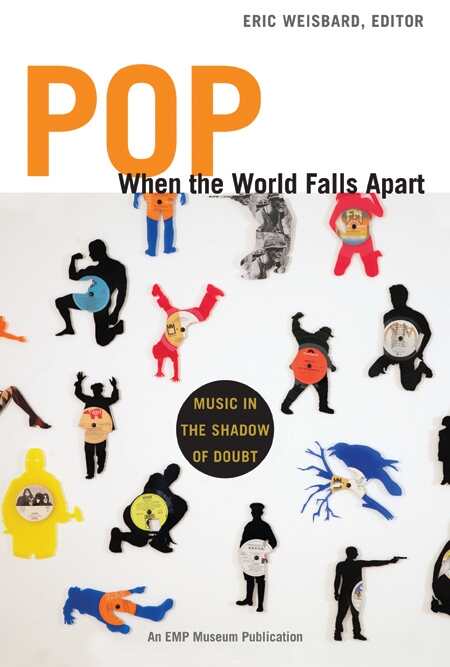Pop When the World Falls Apart
Music in the Shadows of Doubt
Much like rock in earlier decades, punk, heavy metal, hip-hop, and other contemporary music genres channel public rage resulting from uncontrollable social and economic disruptions. Eric Weisbard has organized the Experience Music Project Pop Conference since its inception in 2002; the essays included here address music’s role during chaotic times and were presented at the 2006 through 2008 symposiums.
Several of the best contributions investigate the convergence of race and music. Greg Tate’s “Black Rockers vs. Blackies Who Rock” shows hip-hop as an angry response to postindustrial urban life in which good jobs moved to the suburbs or overseas. Diane Pecknold’s excellent “Travel with Me: Country, Music, Race, and Remembrance” reveals the Black Power movement’s unlikely country music roots as demonstrated, in part, by Isaac Hayes’s version of Jimmy Webb’s By the Time I Get to Phoenix. The essay “Black Moses” reinterprets this pop tune as part of the African-American experience. Michelle Habell-Pallan’s compelling “Death to Racism and Punk Revisionism” describes how Alice Armendarez Velasquez, popularly known as “Alice Bag,” transfused punk music of the late 1970s and ’80s with songs belted out in a “estilo bravio”—bold and aggressive—style that paid homage to her Mexican culture while causing audiences to riot.
Two noteworthy contributions revisit events that shook the United States during the first decade of this century. In “Bellephonic Sounds and Indoctrinated Ears: The Dynamics of Military Listening in Wartime Iraq,” J. Martin Daughtry recounts music’s significance for soldiers during the first “iPod War.” Ubiquitous music pumped up soldiers going into battle, but unceasing noise caused hearing loss and post-traumatic stress disorder. When Hurricane Katrina flooded New Orleans in 2005, it washed away the Crescent City’s vibrant jazz culture; and while housing, public safety, education, and health care challenges couldn’t destroy live New Orleans jazz, they ensured that its return would never be the same, writes Larry Blumenfeld in “Since the Flood.”
This collection covers a varied terrain: ghostwriting celebrity memoirs; Karen and Richard Carpenter’s reassuring pop songs, whose darkness bubbled below a syrupy surface of melody and lyrics: Retro-Soul’s appeal to middle-class whites; and Morris Holt—a.k.a. “Magic Slim”—as the last keeper of traditional Chicago Blues. While some of the articles stray from the book title’s promise, together they offer a stimulating view of popular music’s indelible cultural imprint.
Reviewed by
Karl Helicher
Disclosure: This article is not an endorsement, but a review. The publisher of this book provided free copies of the book to have their book reviewed by a professional reviewer. No fee was paid by the publisher for this review. Foreword Reviews only recommends books that we love. Foreword Magazine, Inc. is disclosing this in accordance with the Federal Trade Commission’s 16 CFR, Part 255.

